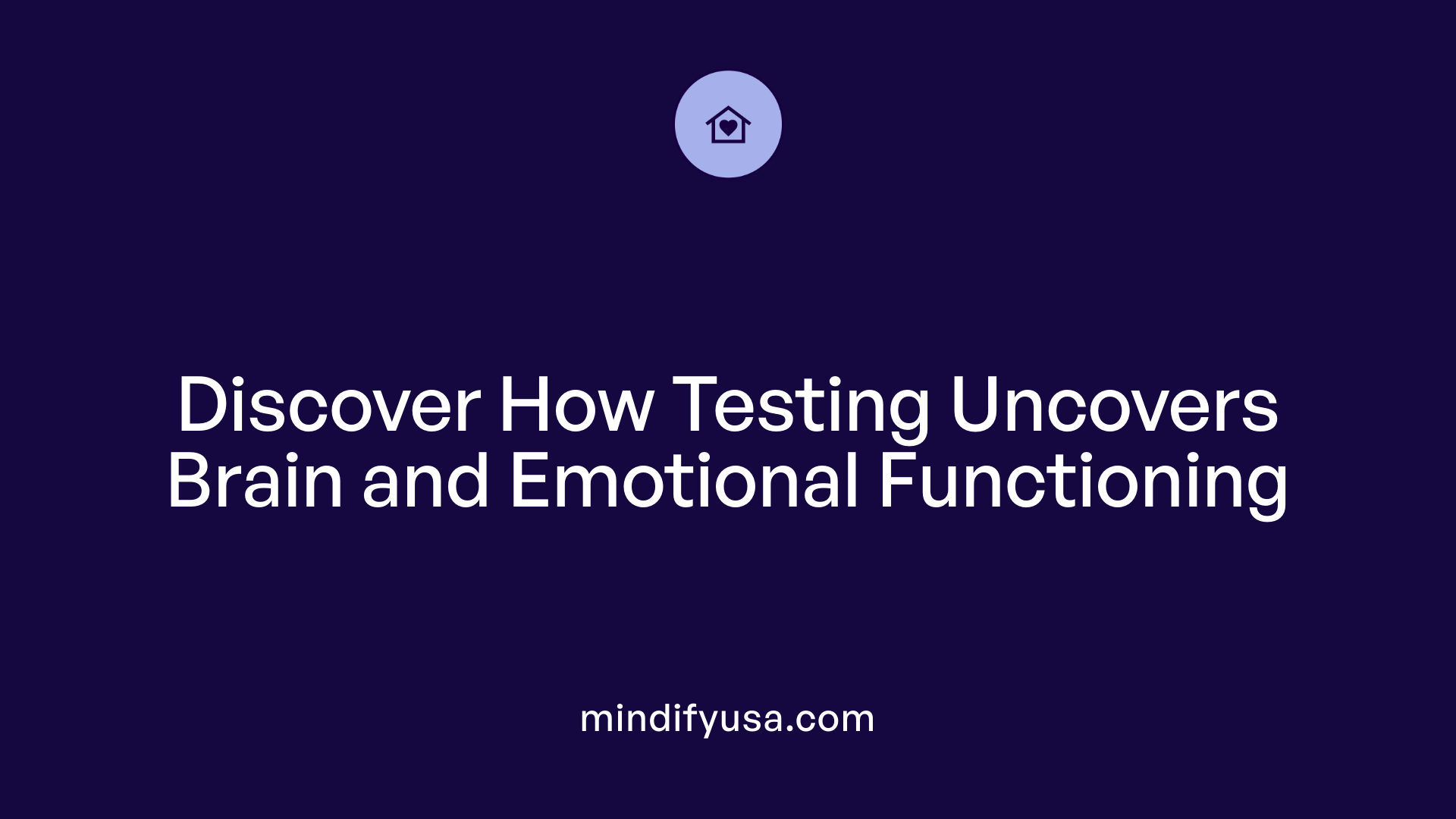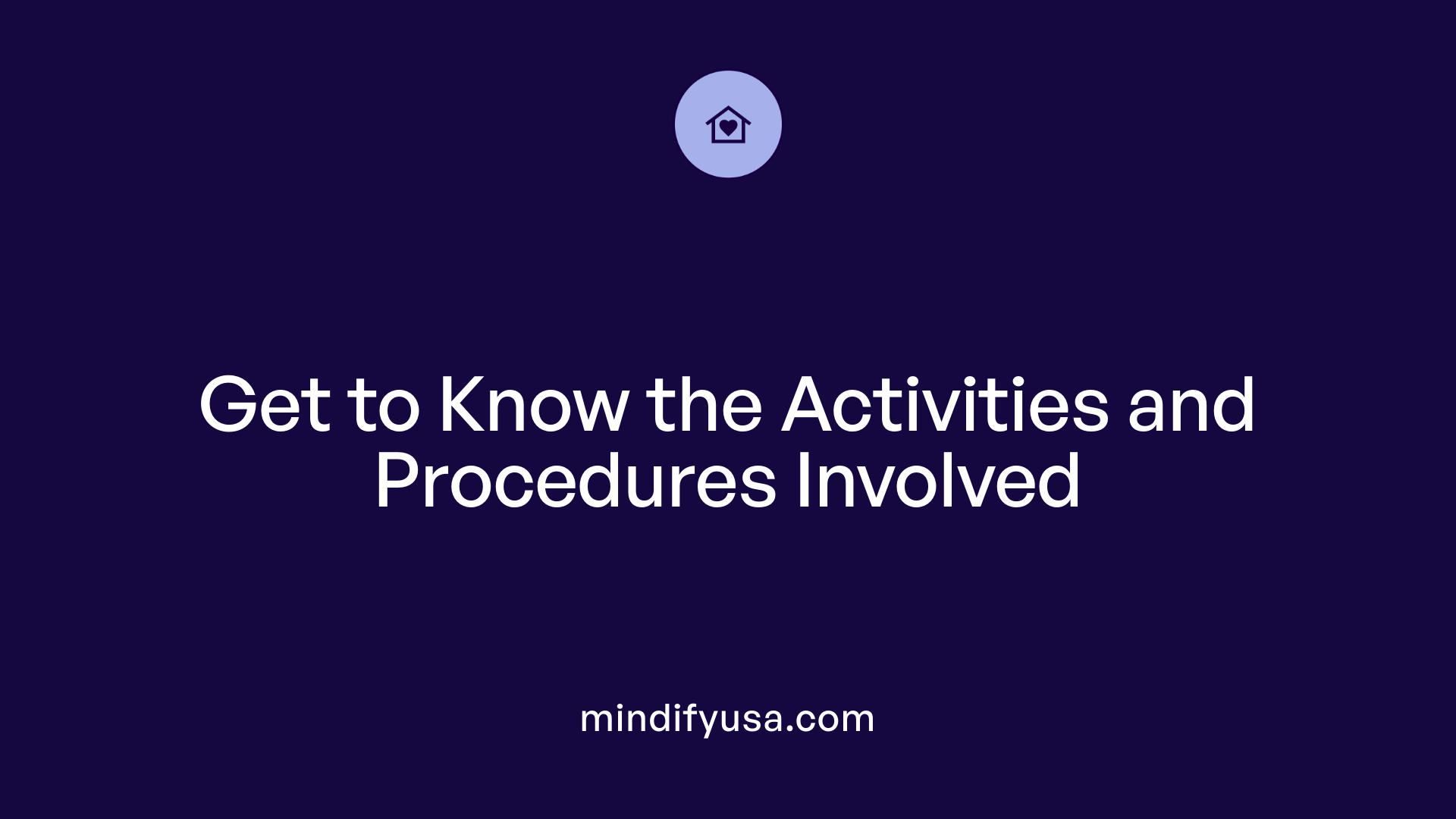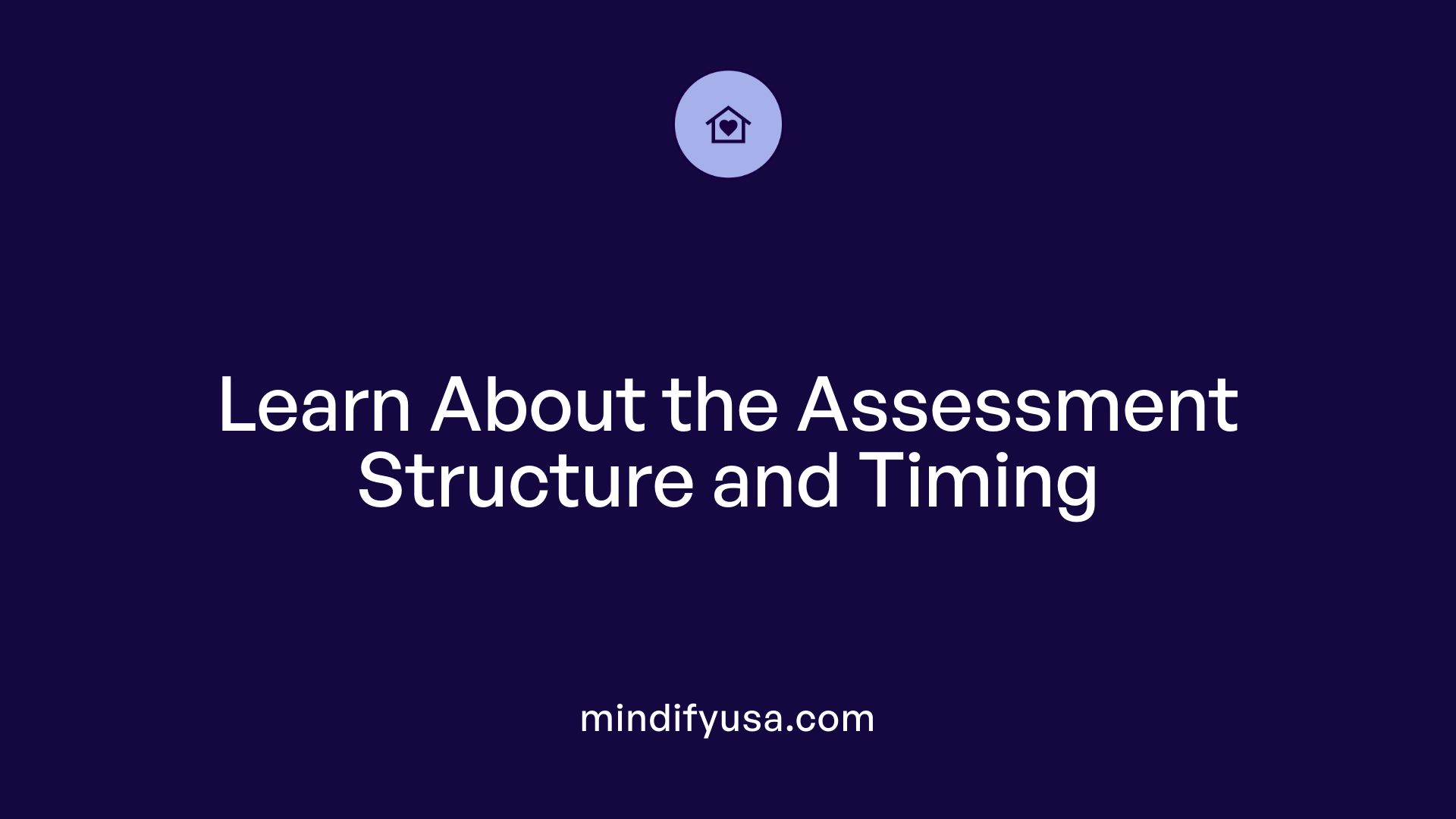An Inside Look at Neuropsychological Evaluations
Neuropsychological testing is a comprehensive process used to evaluate cognitive, emotional, and behavioral functions related to brain health. This article provides an in-depth overview of what occurs during these sessions, from initial preparations to the final report, helping patients and caregivers understand what to expect and how these evaluations can support diagnosis and treatment planning.
Purpose and Objectives of Neuropsychological Testing

What is the purpose of neuropsychological testing?
Neuropsychological testing provides a thorough evaluation of a person's mental and emotional functions to assess how effectively the brain is working. Its main goal is to uncover cognitive strengths and weaknesses that may impact daily life.
This testing helps clinicians diagnose specific neurological or psychiatric conditions. For example, it can distinguish between dementia, traumatic brain injury, developmental disorders, and other brain-related issues.
The assessment offers insights that are crucial for designing targeted treatment and rehabilitation strategies. It guides clinicians on the most effective interventions tailored to the individual's needs.
Additionally, neuropsychological testing can be used to monitor disease progression or recovery. By comparing results over time, healthcare providers can track how brain health changes and adjust care plans accordingly.
Beyond medical purposes, these evaluations are valuable in legal, educational, and occupational settings. They provide documented evidence of cognitive and emotional functioning, which can be essential for decisions related to disability, competency, or accommodations.
Overall, neuropsychological testing is a vital tool in understanding the complex relationship between brain health and behavior, ultimately helping improve patient outcomes and quality of life.
Procedures and Activities in a Testing Session
 During a neuropsychological testing session, a trained neuropsychologist guides the patient through various standard procedures and activities aimed at evaluating cognitive, behavioral, and emotional functioning. The session often begins with an interview, where the neuropsychologist reviews medical history, current concerns, and personal or family background, to contextualize the testing.
During a neuropsychological testing session, a trained neuropsychologist guides the patient through various standard procedures and activities aimed at evaluating cognitive, behavioral, and emotional functioning. The session often begins with an interview, where the neuropsychologist reviews medical history, current concerns, and personal or family background, to contextualize the testing.
Following the interview, the patient engages in a series of activities that assess different brain functions. These include answering questions related to memory, reasoning, language, and problem-solving, as well as performing tasks such as drawing pictures, solving puzzles, and completing problem-solving exercises. The assessment may involve computer-based tasks, where stimuli are presented digitally, or paper-pencil tests that examine skills like writing, math, and pattern recognition.
The tests are designed to be engaging and are generally not overly difficult or tiring. Most tasks do not have pass or fail outcomes but are used to identify areas of strength and weakness. The technician or psychometrist assists in administering these tests under the supervision of the neuropsychologist, ensuring consistency and standardization.
An important component of the process involves observing the patient's behavior and emotional responses during testing. Neuropsychologists pay attention to signs of fatigue, anxiety, or frustration, which can influence test performance.
Supportive elements are incorporated into the environment to facilitate optimal performance. This includes providing a quiet, comfortable setting, allowing short breaks when needed, and encouraging the patient to relax. Preparation before the session involves ensuring good sleep, proper nutrition, and bringing necessary aids such as glasses or hearing devices.
Overall, the procedures aim to explore a broad range of cognitive and emotional abilities, establishing a comprehensive profile of brain health. The collected data is then analyzed by the neuropsychologist, who interprets the results relative to normative standards and previous assessments. This detailed understanding supports diagnosis, treatment planning, and ongoing monitoring of cognitive health.
Structure, Duration, and the Overall Process

What is the typical structure and duration of a neuropsychological assessment?
A neuropsychological assessment generally involves a series of testing sessions conducted in a quiet, well-organized environment free of distractions. The entire process can span from several hours to an entire day or multiple days depending on the scope of the evaluation. It begins with an initial interview where the neuropsychologist discusses symptoms, medical history, and concerns, providing context for the testing.
Following this, standardized tests are administered to evaluate various cognitive functions, including memory, attention, language, reasoning, problem-solving, visuospatial skills, and emotional health. These tests often involve activities like writing, drawing, completing puzzles, and computer-based tasks. The neuropsychologist carefully selects and conducts these assessments, ensuring that they are suited to the individual’s specific needs.
The process is adaptable; it allows for scheduled breaks to minimize fatigue and support patient focus. The assessments can be tailored in length depending on specific referral questions and patient's stamina, with some evaluations taking a few hours and others extending over multiple sessions.
After testing, scores are analyzed and compared against normative data that take into account factors such as age, gender, and education. The results are compiled into a comprehensive report that offers insights into the individual's cognitive strengths and challenges, informing diagnosis and treatment options.
How long does a typical neuropsychological evaluation last?
The overall duration of neuropsychological testing varies according to individual circumstances and the complexity of the assessment. For older adults over 65, the process may take around two to three hours, often with breaks included to prevent fatigue. For younger or more complex cases, the assessment might extend beyond four hours.
Many evaluations include an initial interview phase, the testing itself, which is scheduled in blocks with rest periods, and a follow-up feedback session. To accommodate fatigue or extensive testing needs, some assessments are divided into multiple shorter sessions spread across different days.
Scheduling flexibility and careful planning are important to optimize the quality of assessment outcomes and ensure that patients remain comfortable throughout the process.
Tasks and Tests Administered During Evaluations
 Neuropsychological assessments involve a broad range of standardized tests and activities designed to evaluate different aspects of brain function. These evaluations typically encompass tests of memory, attention, language, reasoning, executive functioning, visuospatial skills, and processing speed.
Neuropsychological assessments involve a broad range of standardized tests and activities designed to evaluate different aspects of brain function. These evaluations typically encompass tests of memory, attention, language, reasoning, executive functioning, visuospatial skills, and processing speed.
Commonly used assessments include well-established instruments such as the Wechsler Adult Intelligence Scale (WAIS-IV), the Wechsler Memory Scale (WMS-IV), the NEPSY-II, and the Delis-Kaplan Executive Function System (D-KEFS). These tests are complemented by specific tasks that measure reading comprehension, problem-solving abilities, and fine motor skills.
During testing, patients may be asked to answer questions, solve puzzles, draw pictures, write stories, or respond to digital stimuli through computer-based tasks. These activities are designed to be engaging and serve to identify individual strengths and weaknesses rather than pass or fail candidates.
The activities vary depending on the individual’s referral concerns. For example, memory tests might involve recalling lists of words or stories, while language assessments could include naming pictures or defining words. Attention and executive function tests often involve sorting tasks or timed problem-solving activities.
Most evaluations include multiple components: oral questions, written exercises, hands-on activities, and computer tasks. The specific combination is tailored to the person’s diagnosis, age, and presenting issues.
Results from these assessments are compared to normative data based on population standards, taking factors like age, education, and cultural background into account. This helps clinicians develop a comprehensive understanding of each patient's cognitive profile.
Overall, the goal of these diverse tasks and tests is to provide a detailed map of brain functions, informing diagnosis and guiding personalized treatment plans. Importantly, none of the tests are meant to be pass/fail; instead, they help identify areas where the individual excels or may need support.
For a more detailed overview, searching for "common neuropsychological tests and tasks" can provide insights into the variety of standardized instruments and procedures used in clinical practice.
Preparation and Post-Testing Considerations
How can individuals prepare for a neuropsychological testing session?
To get ready for a neuropsychological assessment, individuals should focus on practical steps to ensure they perform at their best.
Ideally, they should get a good night’s sleep before the day of testing. Eating a healthy breakfast, free of caffeine and sugar spikes, can help maintain energy levels.
It's advisable to bring any aids they normally use, such as glasses or hearing aids, to ensure their full participation.
Compiling a list of current medications and any recent medical treatments is helpful for the neuropsychologist to interpret results accurately.
Patients should plan to arrive on time, allowing extra time for any potential delays. A family member or trusted friend can be helpful to bring along or be available for any interviews, although testing occurs privately.
There’s no need for special studying or preparation—think of the tasks as puzzles or games designed to assess your abilities.
Reviewing previous medical or neuropsychological records can also provide useful context for the assessment.
Following any specific instructions given by the clinician, such as refraining from certain medications or activities, can contribute to a smooth process.
In summary, being rested, relaxed, and well-prepared helps ensure accurate results and a less stressful experience.
What should patients expect after completing neuropsychological testing?
Once the testing is finished, the neuropsychologist will carefully analyze the data, comparing scores with normative benchmarks and integrating all collected information.
A comprehensive report will be drafted, highlighting the individual’s cognitive strengths and impairments, and may include formal diagnoses and tailored treatment recommendations.
Typically, results are shared with the patient during a follow-up appointment or a scheduled consultation within a few weeks.
During this session, the neuropsychologist will explain findings in understandable language and answer any questions. Follow-up discussions with the referring doctor can further clarify treatment options.
Post-test recovery usually involves returning to normal activities immediately, as the assessment is non-invasive. Some may experience temporary fatigue or mental drain, similar to after a long mental effort.
The insights gained from the evaluation can inform medical treatment, psychological support, educational accommodations, or lifestyle adjustments, all aimed at improving cognitive and emotional wellbeing.
Overall, preparation and understanding of the process can make neuropsychological assessments more manageable and productive.
Goals and Outcomes of Neuropsychological Assessments
Neuropsychological assessments are comprehensive evaluations aimed at understanding a person’s brain functioning across various cognitive and emotional domains. Their main goal is to identify specific strengths and weaknesses in areas such as memory, attention, language, reasoning, visuospatial skills, and mood. This detailed understanding helps in diagnosing neurological conditions like stroke, traumatic brain injury, Alzheimer’s disease, and psychiatric disorders, providing a clearer picture of the individual’s cognitive profile.
One of the primary outcomes of these assessments is guiding treatment plans and interventions. By pinpointing particular deficits, clinicians can recommend targeted therapies, cognitive rehabilitation, or accommodations at school or work. This tailored approach enhances the individual’s ability to manage their condition effectively.
Monitoring changes over time is another vital purpose. Repeat evaluations can track disease progression, evaluate the impact of treatments, or assess recovery following brain injury. These ongoing insights support adjustments in care and provide valuable information for patients and their families.
Neuropsychological assessments often serve a legal or educational purpose, assisting in disability claims, legal cases, or determining suitable academic placements. They provide objective evidence of cognitive functioning, which can be critical in such decisions.
Furthermore, these evaluations offer insights into the relationship between brain function and behavior. Understanding how specific cognitive functions relate to emotional regulation, social behavior, and daily functioning helps clinicians develop holistic treatment strategies.
In essence, the goals of neuropsychological testing extend beyond diagnosis. They encompass creating a foundation for effective intervention, support, and ongoing management, ultimately aiming to optimize the individual’s quality of life. The detailed reports produced are instrumental in informing a wide range of medical, psychological, educational, and legal decisions, empowering patients and clinicians alike to take informed steps toward improved well-being.
Navigating the Neuropsychological Evaluation Journey
Understanding what happens during neuropsychological testing sessions can alleviate anxiety and help patients approach the process with confidence. From initial interviews and record reviews to engaging in a variety of cognitive tasks and receiving comprehensive feedback, each step is designed to provide valuable insights into brain health. These evaluations are essential tools in diagnosing conditions, guiding treatment options, and tracking changes over time. With proper preparation and support, individuals can maximize the benefits of neuropsychological assessments, ensuring that their cognitive and emotional well-being are thoroughly understood and effectively managed.
References
- What to Expect: Neuropsychology Assessment | Stanford Health Care
- What Is a Neuropsych Evaluation?
- Neuropsychological Evaluation: What to Expect - Pine Rest Newsroom
- Prepare for Your Neuropsychological Assessment :: Noran Neurology
- Neuropsychological Assessment - StatPearls - NCBI Bookshelf
- Frequently Asked Questions | ColumbiaDoctors Children's Health
- What Happens During a Neuropsychological Evaluation?






































































































